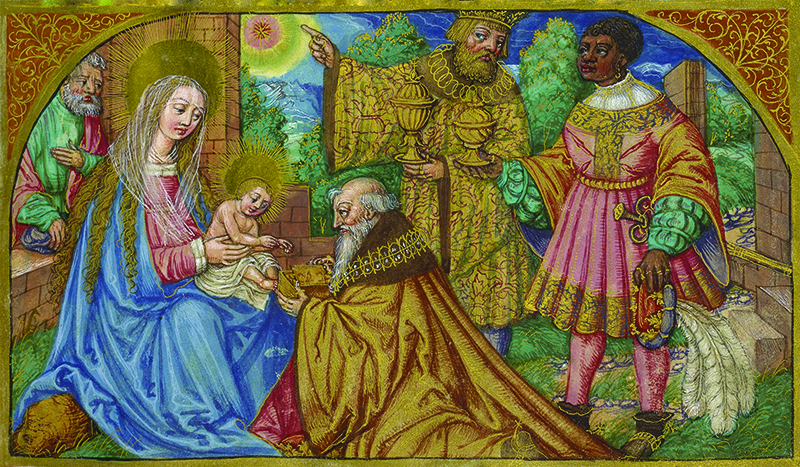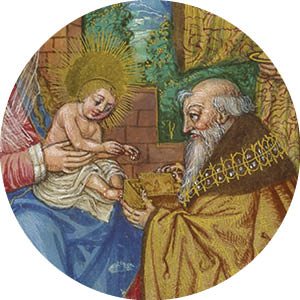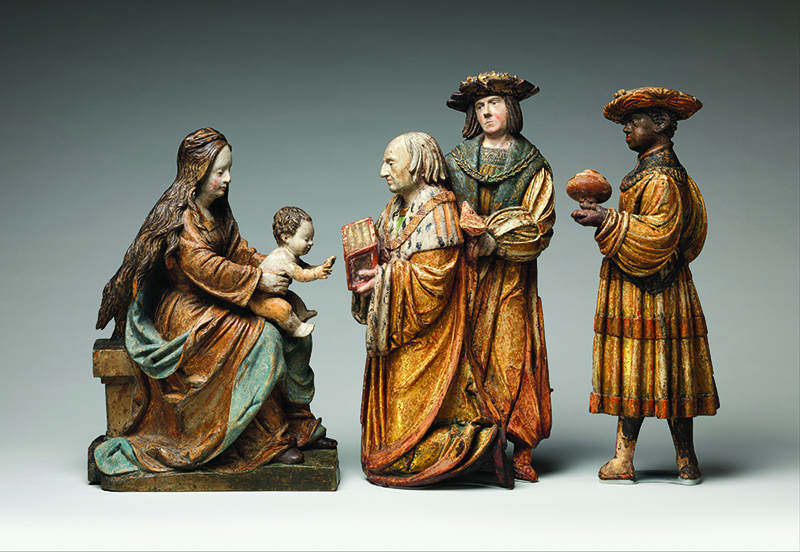
by Juhana Pohjola
The story of Jesus’ birth may appear to the reader of the Gospels as a beautiful but random event—something which took place a long time ago in the remote town of Bethlehem. But on closer inspection, we see how this story reveals that everyone—even the adversaries of Jesus, albeit unwittingly—has to serve this Child in the manger. The Emperor, Caesar Augustus, through his Governor Quirinius, carries out the taxation of Judea which leads Joseph and Mary to Bethlehem. King Herod announces in his palace to the Magi that the Messiah will be born in Bethlehem. Even the movement of a star in space helps to serve the coming of the King by announcing the time and place of His birth.
But it is the Wise Men of the East—not the Emperor, not the Governor, not the King—who are the first to adopt a posture of worship before the Child of Christmas. They say: “We have come to worship Him” (Matthew 2:2). The word “worship” here literally means “to bow one’s face to the ground.” Bowing is an outward way of expressing respect or even divine worship. Ultimately, it indicates whom a person fears and loves—in whom one put his trust and hope.
This is a theme Matthew carries throughout his Gospel. First, Herod cleverly and murderously replies that he also intends to “bow down to” this newborn King (2:8)—even though in reality he bowed only to his own power and desires. Likewise, the devil offered Jesus the riches and pleasures of the world if He would only “fall down and worship me” (4:8). A synagogue ruler also “came and bowed down before [Jesus]” (9:18), not for Jesus’ own sake, but rather out of fear for his daughter who was ill and in danger of death. Many others bowed to Jesus for various reasons, but Matthew’s Gospel ends with a picture of the disciples, who had denied their Lord, now worshipping with fear and joy the Risen One: “And when they saw Him, they worshipped Him” (28:17)—that is, they bowed before Him.

Matthew’s repeated references to bowing reminds us: everyone bows down to something. Some do it consciously, others unknowingly. Some worship the living God, others idols. Who are you bowing to? This is the most important question of your Christmas. All other topics are trivial in the face of this one question, and its answer has eternal consequences. The Child in the manger asks you: Have you pinned your hopes on Me or on ideologies and idols that will soon disappear? Do you put your trust in My Holy Words or in human promises and opportunities? Will you join Me or the worshippers of the god of this world?
Who do you bow to? The question runs through the history of the whole world, every place, every time, and confronts every man. Do we join Sunday after Sunday the eschatological community of the company of heaven worshipping the Lamb on the throne (Revelation 4:10)? Or do we bow before the might and power of darkness (Revelation 13:4), which directs us to lust after the things of this world—“the desires of the flesh and the desires of the eyes and pride in possessions” (1 John 2:16)?
Who you bow to is not an abstract question but something that affects our everyday life. During the past number of years, I have been tempted from without by the pressures of the media and even by state prosecutors in courtrooms to bow down to the spirit of this age. I have been told: Give up your biblical confession! Give up your Christian understanding of humanity and marriage, and nod your head in acceptance to tolerance, equality, and progress! But even when we are not asked to deny biblical truth and the order of creation, there remains a great temptation to remain silent about the truth out of fear—to consent, effectively, to the lies. Who will speak boldly for life, goodness, and truth if we as the Christian Church remain mute?
There is also another temptation when we see the growing darkness around us. We can turn our back on the Lord from within, by bowing down to fear, despair, and bitterness. We curve in upon ourselves, and start counting how few and weak we are and all the wrongs done to us. We focus more on the darkness and ugliness of our time, and not on the light and hope we have in Christ.
Our hope in Christ lies not only in the fact this small Child in the manger has the power to give renewal to His Church and change the direction of our culture of death for the better. Nor is our hope in Christ something merely eschatological—the knowledge that in the end there will come a time when everything is in perfect order and whole, beautiful and pure. Our hope in Christ is that already now—in the midst of hostility and cultural pressure, apostasy and sufferings—He is graciously present among us. Our hope is not only for the future but is a blessed reality here and now. Our hope understands how He carries us in His Church, nurturing us by His Holy Spirit at the altar and the pulpit. Our hope sees with the eyes of faith how He does not abandon us but encourages us through brotherly love and shared life together. Our hope remembers that everything must ultimately bow down to His good will and plan for us. He can turn evil for the good of His disciples. That is why Christians remember the words of the apostle Paul: “Rejoice in hope, be patient in tribulation, be constant in prayer” (Roman 12:12).

Today, more and more Christians in our post-Christian culture are paying a high price for not bowing down to lies. How could it be otherwise, since the servant is not greater than the Master (John 15:20)? But what is the price we might have to pay compared to the price which the Son of God was willing to pay for us? He who, as the King of Kings, asks you this question is also Christ crucified for our sins—the King who came not to be worshipped but to bow down to you in humiliation: “For even the Son of Man came not to be served but to serve, and to give His life as a ransom for many” (Mark 10:45).
Before Him, we do not bow out of slavish fear nor merely for the sake of obedience. Neither do we bow down to Him in order to get something from Him, as payment for our adoration. The Christian Church bows down to the manger and the altar of her Lord out of love for Him who first loved us—Him who still loves us, bearing us up with His grace and filling us with His gifts. Our hope is not in our personal feeling of hope, but in Christ Jesus Himself and His promises! In Him is our hope and joy, and no one can take them away from us. We receive Him in His Words, in the water, in the wine and the bread, so that we rejoice and confess together with St. Paul: “Christ in you, the hope of glory” (Colossians 1:27)!
Therefore, on Christmas night, Christendom joins in the joyful hymn that echoes through the darkness of death, fear, and despair:
O come, all ye faithful
Joyful and triumphant!
O come ye, O come ye to Bethlehem;
Come and behold Him
Born the King of angels;
O come, let us adore Him,
O come, let us adore Him,
O come, let us adore Him, Christ the Lord! (LSB 379)
———————
Rev. Dr. Juhana Pohjola is Bishop of the Evangelical Lutheran Mission Diocese of Finland (ELMDF) and Chairman of the International Lutheran Council (ILC).
This article was originally published by The Canadian Lutheran.
